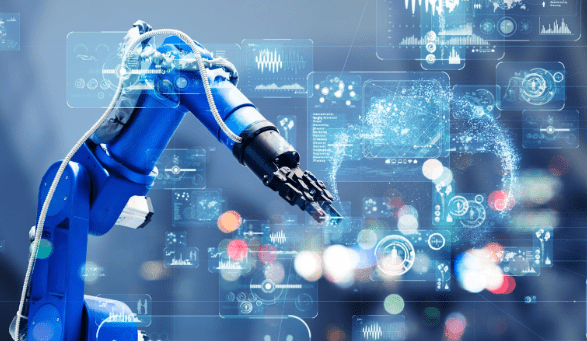Artificial Intelligence (AI) is revolutionizing engineering simulations, offering unprecedented improvements in both accuracy and efficiency. By integrating AI into simulation processes, engineers can achieve faster results without compromising precision, leading to more innovative and cost-effective solutions.
Accelerating Simulation Processes with AI
Traditional engineering simulations, while accurate, often require significant computational resources and time. AI addresses this challenge by introducing models that can predict outcomes rapidly. For instance, the DoMINO neural network model has demonstrated the ability to perform large-scale engineering simulations up to 1,000 times faster than conventional methods, maintaining high accuracy . (From weeks to seconds: The AI revolution in engineering, New AI Model Makes Engineering Simulations 1000x Faster While …)
Similarly, companies like Altair have developed AI-powered tools such as PhysicsAI™, which utilize geometric deep learning to deliver simulation results significantly faster than traditional approaches . These advancements enable engineers to explore more design options within shorter timeframes, fostering innovation and reducing time-to-market. (From weeks to seconds: The AI revolution in engineering, Engineering software startup Rescale raises $115 million from Applied Materials, Nvidia)
Enhancing Accuracy Through AI Integration
Accuracy is paramount in engineering simulations, as minor miscalculations can lead to flawed designs. AI enhances accuracy by analyzing and correcting potential errors that may arise during traditional modeling processes. These systems are adept at detecting patterns, spotting anomalies, and learning from past mistakes, thereby helping engineers create more precise models . (The Expanding of AI and Engineering Simulation)
Moreover, AI-driven simulations can adapt to various conditions and parameters, ensuring that the models remain robust and reliable across different scenarios. This adaptability is crucial in fields where conditions can vary widely, such as aerospace or automotive engineering.
Optimizing Design and Development Workflows
The integration of AI into engineering simulations streamlines the design and development process. By automating routine tasks and providing rapid feedback, AI allows engineers to focus on more complex aspects of design. This optimization leads to more efficient workflows and reduces the likelihood of costly errors.
For example, AI-enhanced simulations can quickly evaluate multiple design iterations, identifying the most effective solutions without the need for extensive manual testing. This capability not only saves time but also conserves resources, contributing to more sustainable engineering practices.
Real-World Applications and Industry Impact
The benefits of AI in engineering simulations are evident across various industries. In the automotive sector, AI enables rapid prototyping and testing of vehicle components, leading to safer and more efficient designs. In aerospace, AI-driven simulations assist in optimizing aircraft structures for performance and fuel efficiency.
Companies like Rescale are leveraging AI to transform traditional simulation processes. By training AI models with simulation data, Rescale has achieved predictions within seconds, with up to 98% accuracy, significantly reducing the time and computational power required for simulations . (Engineering software startup Rescale raises $115 million from Applied Materials, Nvidia)
Challenges and Considerations
While the integration of AI into engineering simulations offers numerous advantages, it also presents challenges. Ensuring the quality and reliability of AI models requires access to extensive and high-quality data. Additionally, integrating AI into existing workflows may necessitate changes in infrastructure and training for engineering teams.
Moreover, the interpretability of AI models is a critical consideration. Engineers must understand how AI arrives at its conclusions to trust and effectively utilize its predictions. Ongoing research and development are focused on creating transparent AI systems that provide insights into their decision-making processes.
Future Outlook
The future of engineering simulations lies in the continued integration of AI technologies. As AI models become more sophisticated and accessible, they will play an increasingly central role in engineering design and analysis. This evolution promises to enhance innovation, reduce costs, and improve the overall quality of engineering solutions.
Emerging technologies, such as digital twins and real-time simulation capabilities, will further augment the impact of AI in engineering. By creating virtual replicas of physical systems, engineers can test and optimize designs in a risk-free environment, leading to more effective and efficient products.
Conclusion
AI is transforming engineering simulations by enhancing accuracy and efficiency. Through rapid processing, improved precision, and optimized workflows, AI empowers engineers to innovate and solve complex problems more effectively. As industries continue to embrace AI-driven simulations, they will unlock new possibilities and set new standards for engineering excellence.
Would you like this article formatted for a specific platform like LinkedIn or Medium?
Also Read :
